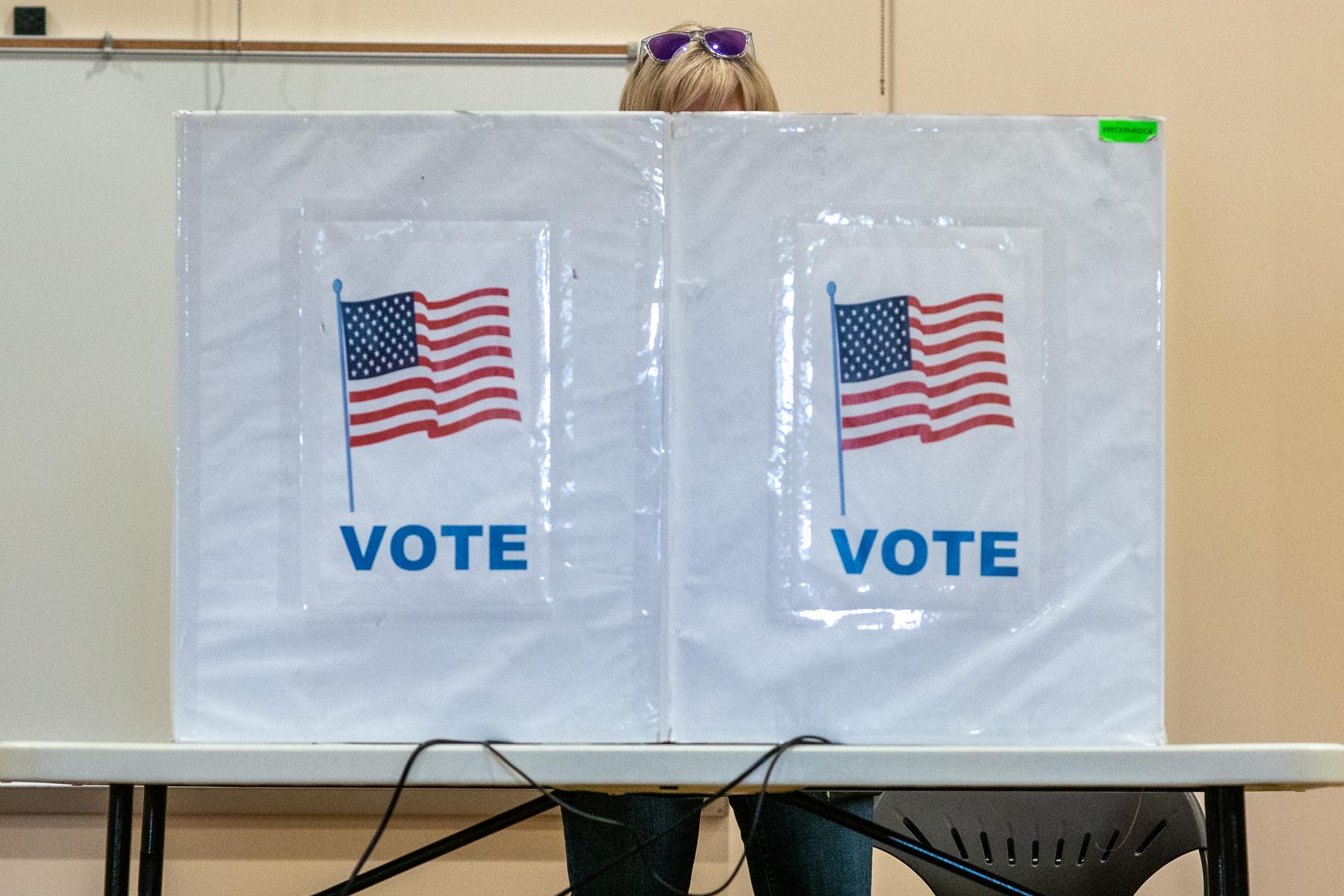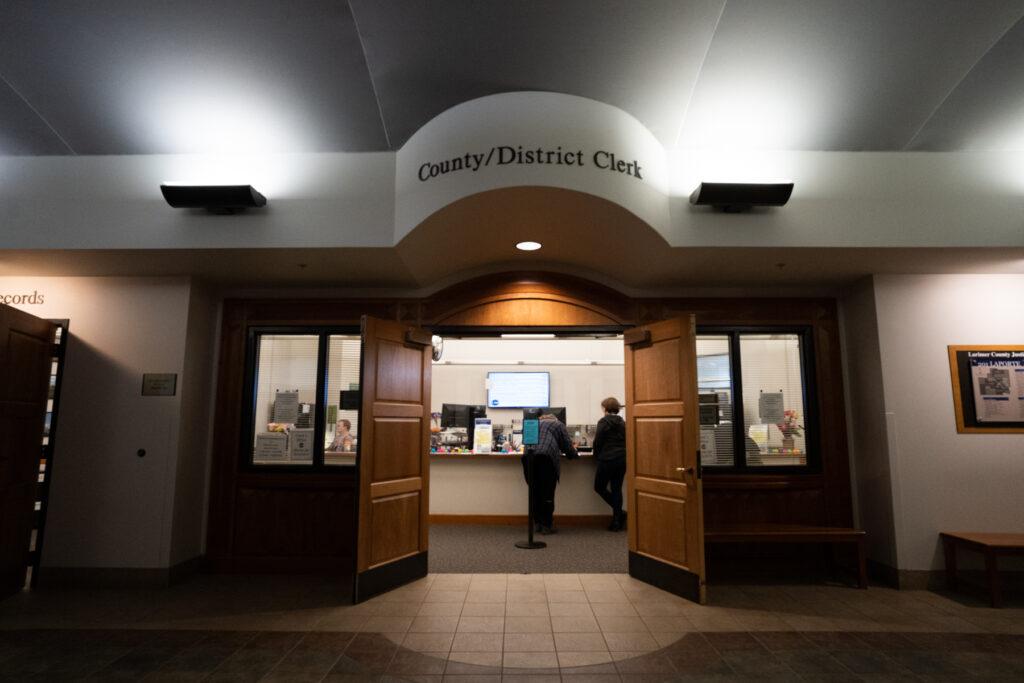
Colorado may decide in November whether to move the state’s elections to a ranked-choice voting system. However, a recent move by the state legislature could block or delay that change, even if it’s approved by voters.
The action is centered on Initiative 310, a ballot measure proposed by the wealthy political reform advocate Kent Thiry. If it passes this fall, it would dramatically change the state’s elections in a way that could reduce the power of the major parties.
The scope of the proposal has drawn concerns from some Democratic lawmakers, as well as local elected officials. On May 5, the state legislature quietly approved a policy that would make it much harder to implement ranked-choice voting statewide. The change was embedded in a major elections-related bill — and some groups are now putting pressure on Gov. Jared Polis to veto the entire measure.
Rep. Emily Sirota, a Democrat, introduced an amendment to the elections bill just before it passed. It sets up logistical hurdles that would slow or stop the changes proposed in Initiative 310 from taking effect.
A number of organizations — including the League of Women Voters of Colorado and various groups that want to change election systems — decried the amendment, saying it interferes with the ballot initiative process.
“The bill’s transparent attempt to frustrate and invalidate the will of the people as expressed through the citizen’s initiative process is an affront to the people of Colorado and the system of checks and balances that govern it,” a letter from the coalition read.
Sirota said she introduced the amendment because it would be irresponsible to require election officials to implement such significant changes over just a couple of years.
“We are being responsible in the way that this gets rolled out if in fact it does pass at the ballot,” Sirota said in an interview “It's not creating roadblocks for rank choice voting, it is just rolling it out in a more responsible way, so that our clerks have time to learn and to adapt.”
Under the amended bill, there is no guarantee that the state could ever move to ranked-choice voting or all-candidate primaries. Instead, that could only happen after various local governments independently decide to implement ranked-choice voting first.
The bill is now on Gov. Polis’ desk, leaving the final decision with him. His office said in a statement that Polis is still reviewing the final version of the legislation. Polis has until June 7 to sign or veto the remaining bills from this legislative session.
The amendment was first reported on by The Colorado Sun.
What the big ballot measure would do
Initiative 310 proposes two major changes that would apply to state and federal elections, starting in 2026:
- Eliminate partisan primary elections. Currently, each party holds primary elections, with the winners facing off in the general election. Under the initiative, the state would move to an “all-candidate primary election.” Every candidate from every party would compete on the same primary ballot. The top four candidates would move on to the general election, even if they’re all from the same party.
- Move Colorado to ranked-choice voting. Instead of selecting just one candidate in the general election, voters would rank some or all of the candidates. If your favorite candidate turns out to be unpopular and doesn’t get enough votes, he or she is eliminated, and your vote instead goes to your second choice. That process of eliminating and reassigning votes is repeated until someone gets to a majority of support and wins.
Those changes could undermine the power of the major parties; voters may be more willing to support nonpartisan or third-party candidates when that choice is no longer seen as throwing away a vote. However, the reforms also would require election clerks to make significant changes over the next couple of years.
How state lawmakers moved to change the rules
The big state elections bill covers a number of topics. Some are technical, while others are significant — such as a provision that bans foreign nationals from spending on ballot measures, or one that gives clerks more time to respond to public records requests.
But it’s the ranked-choice voting amendment that is drawing the most attention right now. It was introduced and passed in under a minute on a Sunday afternoon days before the end of the session.
“This amendment was worked out with several of our clerks to ensure that as new voting methods are implemented in different types of elections, we have a good amount of data to analyze to ensure we're not undermining Colorado's confidence in our elections,” Sirota said at the time.
Under the amendment, before the state could implement its new system, local governments in 12 different counties would have to decide to move to ranked-choice elections, too. If there isn’t enough interest from local governments in making such a change, then Initiative 301 would never go into effect statewide.
The bill also sets specific requirements on which local governments would have to take the plunge first. The dozen test cases would have to come from counties across a wide range of population sizes, including at least three of the state’s smaller counties — those with fewer than 10,000 active voters. (About half of the state’s counties currently meet that requirement, and they tend to be politically conservative.)
If RCV reformers were to eventually convince enough local governments to make the change, then the state would draft a report on how the new system impacted voter turnout among disabled voters, voters who aren’t white, people who don’t speak English, and other “historically under-represented communities.”
Curtis Hubbard, a spokesman for the Initiative 310 effort, said the new requirement was meant to “undermine” the ballot initiative, adding: “It's been done already at the local level in Colorado, and we know it can be done at the statewide level here in Colorado.”

Matt Crane, executive director of the Colorado County Clerks Association, said it’s reasonable to ask that reformers start local.
“I guess we'll have to see. If rank choice voting is as popular as the proponents say that it is, then they should be able to find communities that are willing to test it out and try it out,” he said. The association worked on the controversial amendment but did not come up with the idea, he said.
The amendment was passed on a voice vote. In a recording of the vote, no lawmakers can be heard voting it. No one asked questions or debated the change, which came during one of the marathon final days of the session.
Pressure on Polis
The League of Women Voters of Colorado has joined with a group of other nonprofits to urge Polis to veto the entire new bill. Such a decision would kill not just the amendment, but all the other unrelated changes. Colorado does not give governors the ability to do line-item vetoes within a bill.
“The amendment applies a convoluted, and perhaps unmeetable, set of terms and conditions which would indefinitely delay, and likely prevent, implementation,” read the letter, which was co-signed by a number of groups that support election changes. “... Partisans cannot be allowed to silence the voice of the people's initiative process. That’s what SB24-210 would do.”
Sirota pushed back against accusations that the legislature’s action was undemocratic, saying that Thiry was “buying” his way onto the ballot because of how he’s filed many versions of his initiatives with the title board.
“He wasn't willing to talk and engage with people at the legislature to think about what is a reasonable and rational way to further ranked-choice voting in Colorado,” she said.
Molly Fitzpatrick, Boulder County Clerk, urged the governor to sign the bill.
“This bill has become a lightning rod about the ranked-choice voting argument. But we have been working on this for months and months with advocates and legislators and this is a bipartisan bill,” she said.
Hubbard said that Initiative 310 supporters would consider legal action if the bill is signed into law. Either way, it’s likely to be an intense election fight.
“Frankly, we think voters know better than politicians and look forward to proving that in November,” Hubbard said.
Initiative 310 has not yet secured its place on the ballot. This week, it survived a challenge before the state Supreme Court. Now, supporters will need to gather thousands of signatures from voters to qualify for a spot.









